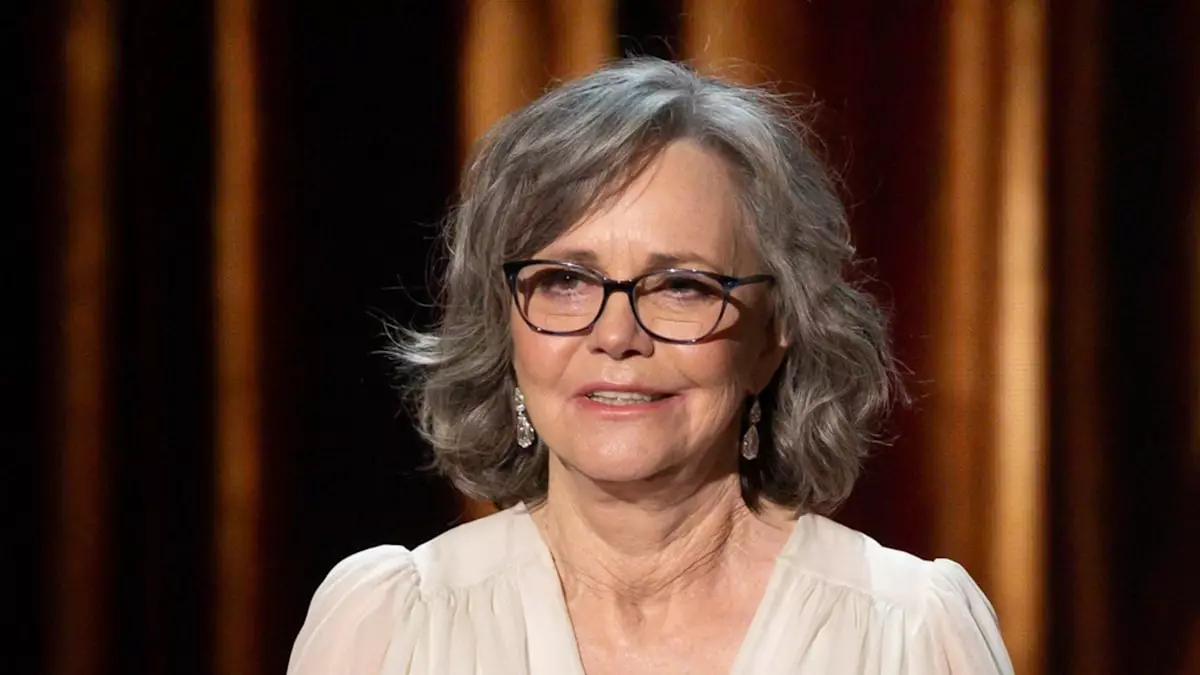Sally Field, a celebrated actress and two-time Academy Award winner, has taken a bold step to voice a deeply personal and harrowing experience from her teenage years. In a heartfelt message shared on social media, she recounts her traumatic journey of discovering an unplanned pregnancy and making the difficult decision to seek an abortion, an act that was illegal in 1964. By revealing her story, Sally seeks to not only unburden herself but also to raise awareness about the ongoing struggles surrounding reproductive rights, particularly in the context of the upcoming 2024 elections.
Field describes her emotional turmoil, recalling that at just 17 years old, she was presented with a life-altering situation devoid of support and financial resources. The shame associated with her experience still lingers, yet she feels compelled to share her story in the hope that it might resonate with others who have faced similar distressing circumstances. Her candor shines a light on a darker historical reality—one where young women had to navigate severe societal stigmas and hazardous conditions in seeking reproductive healthcare.
The gravity of her experience is underscored by the details she chose to share. A family friend—a doctor—came to her aid, facilitating a clandestine trip to Tijuana for the procedure. The atmosphere she describes is suffused with fear and uncertainty, accentuated by the perilous nature of seeking an illegal abortion. As she navigates her way to the clinic, carrying an envelope filled with cash, Sally paints a vivid picture of a young girl confronting a brutal reality.
The procedure itself was a nightmare for her. With no anesthesia to quell the pain and being subjected to what she describes as sexual abuse during the operation, Sally’s story transcends mere personal trauma; it exemplifies the vulnerabilities women faced during that era. The painful juxtaposition of her being cast later that year as the wholesome character Gidget further amplifies the irony of societal expectations of women—innocent on the surface, yet haunted by burdens that ran deep beneath.
In her reflections, Field emphasizes the collective experience of women from her generation who grappled with similar crises. She fears that without vigilance and advocacy, society could once again regress into a period where women’s autonomy over their own bodies is stripped away. Her supportive stance for Presidential candidates Kamala Harris and Tim Walz highlights a critical understanding of how personal experiences can catalyze broader political engagement. Field implores everyone, particularly women, to take note of the stakes involved in the upcoming election.
The narrative moves beyond personal trauma into a call for action. Field’s unwavering support for reproductive rights echoes a sentiment shared by many women who have endured the same shame and fear, urging a collective fight for future generations. The reality of contraceptive access and reproductive choices positions her story as not just a reflection of past hardships, but as a crucial commentary on current socio-political landscapes.
Field’s courage to come forward is not merely an expository act; it acts as a clarion call to empower and educate for change. Her plea for awareness in the electoral process is an essential reminder that the ground gained by reproductive rights advocates is fragile and requires continual vigilance. By rallying support for candidates who champion reproductive freedom, she intends to ensure that the mistakes of the past are not repeated.
In closing, Sally Field’s narrative is a poignant reminder of the power of sharing one’s truth—a story that not only educates but evokes empathy and action. As we reflect on her words, we recognize the importance of standing for reproductive rights in a time when they are being fervently contested. Her experience, while steeped in pain, becomes a powerful testament to resilience and advocacy, urging us all to pay careful attention as we approach a critical juncture in defending women’s rights.

